Berlin attack: Crowds return to reopened Christmas market in show of defiance against 'cowardly' terrorism
Armed police patrol market surrounded by concrete barriers as attacker remains at large
Your support helps us to tell the story
From reproductive rights to climate change to Big Tech, The Independent is on the ground when the story is developing. Whether it's investigating the financials of Elon Musk's pro-Trump PAC or producing our latest documentary, 'The A Word', which shines a light on the American women fighting for reproductive rights, we know how important it is to parse out the facts from the messaging.
At such a critical moment in US history, we need reporters on the ground. Your donation allows us to keep sending journalists to speak to both sides of the story.
The Independent is trusted by Americans across the entire political spectrum. And unlike many other quality news outlets, we choose not to lock Americans out of our reporting and analysis with paywalls. We believe quality journalism should be available to everyone, paid for by those who can afford it.
Your support makes all the difference.The Christmas market near Berlin’s famous Kaiser Wilhelm Memorial Church is bustling once more just three days after more than 60 people were killed or injured in Germany's worst every Islamist terror attack.
Martin Dubie, a mulled wine seller, is serving a queue of enthusiastic customers just metres from where a lorry hijacked by a suspected Isis supporter ploughed into nearby stalls.
“I heard this huge crash and then people started to run past, screaming ‘attack, attack, attack’,” he recalls.
“I ran around the corner to see if I can help, there were injured people and bodies everywhere.”
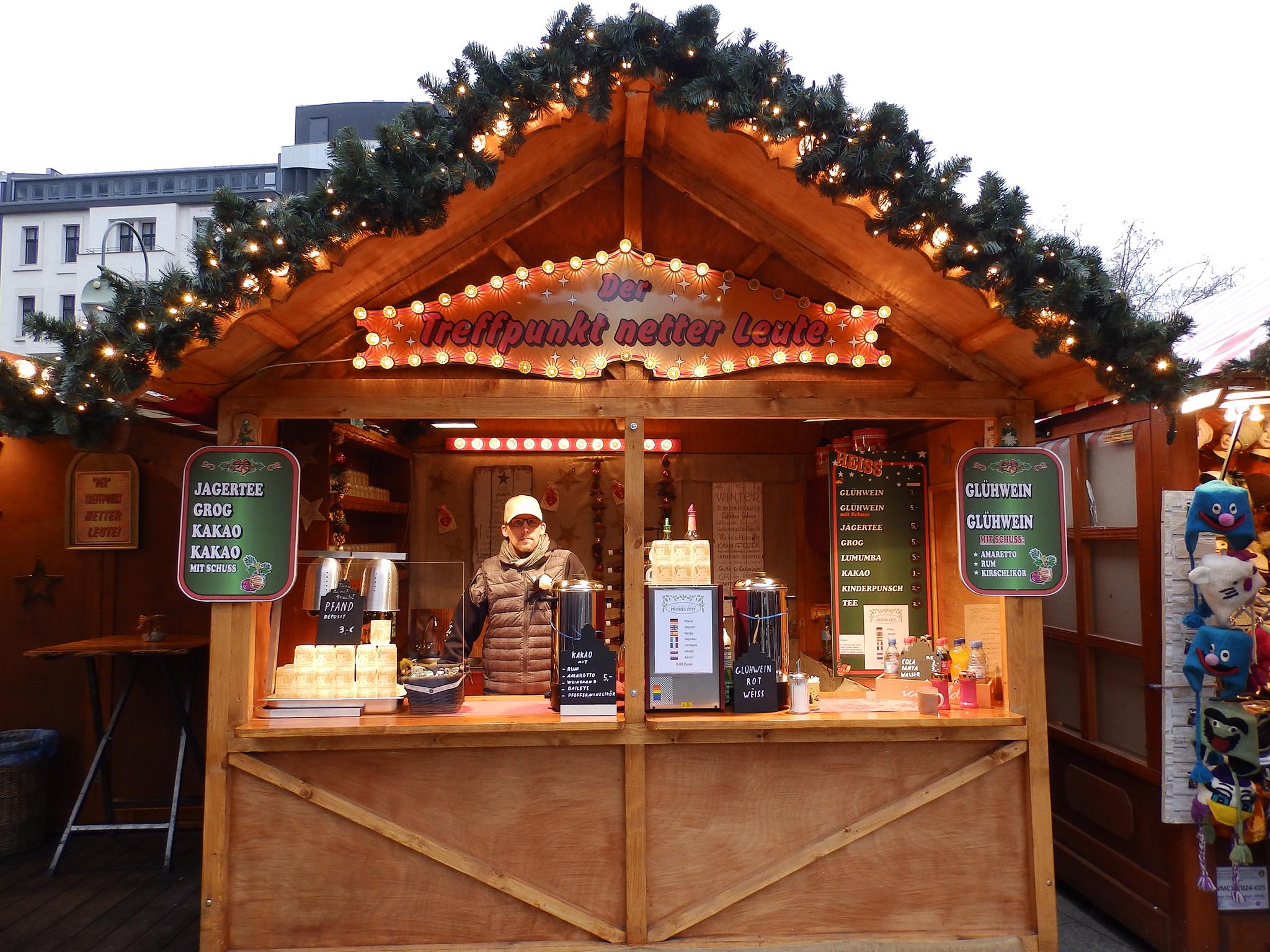
The horror has deeply affected all stallholders at the picturesque market, but every single one of its festive huts that were left intact reopened in a show of defiance on Thursday.
“It’s good that we have reopened now,” Mr Dubie says. “We have to stay here, we have to stand together.”
Berliners and tourists mill around the stalls selling traditional gingerbread and gifts under the watchful eye of patrolling squads of armed police, surrounded by protective concrete barriers.
The lorry has been removed and debris swept away but numerous spontaneous memorials left to the 12 victims of the attack serve as a constant reminder of the atrocity.
Britta, a candle seller, says the whole festive season had felt “strange” and blames the government for increasing fears with previous warnings about possible attacks at Christmas markets.
“We had a very heavy police presence before, more than I’ve ever seen, and still it happened,” she says.
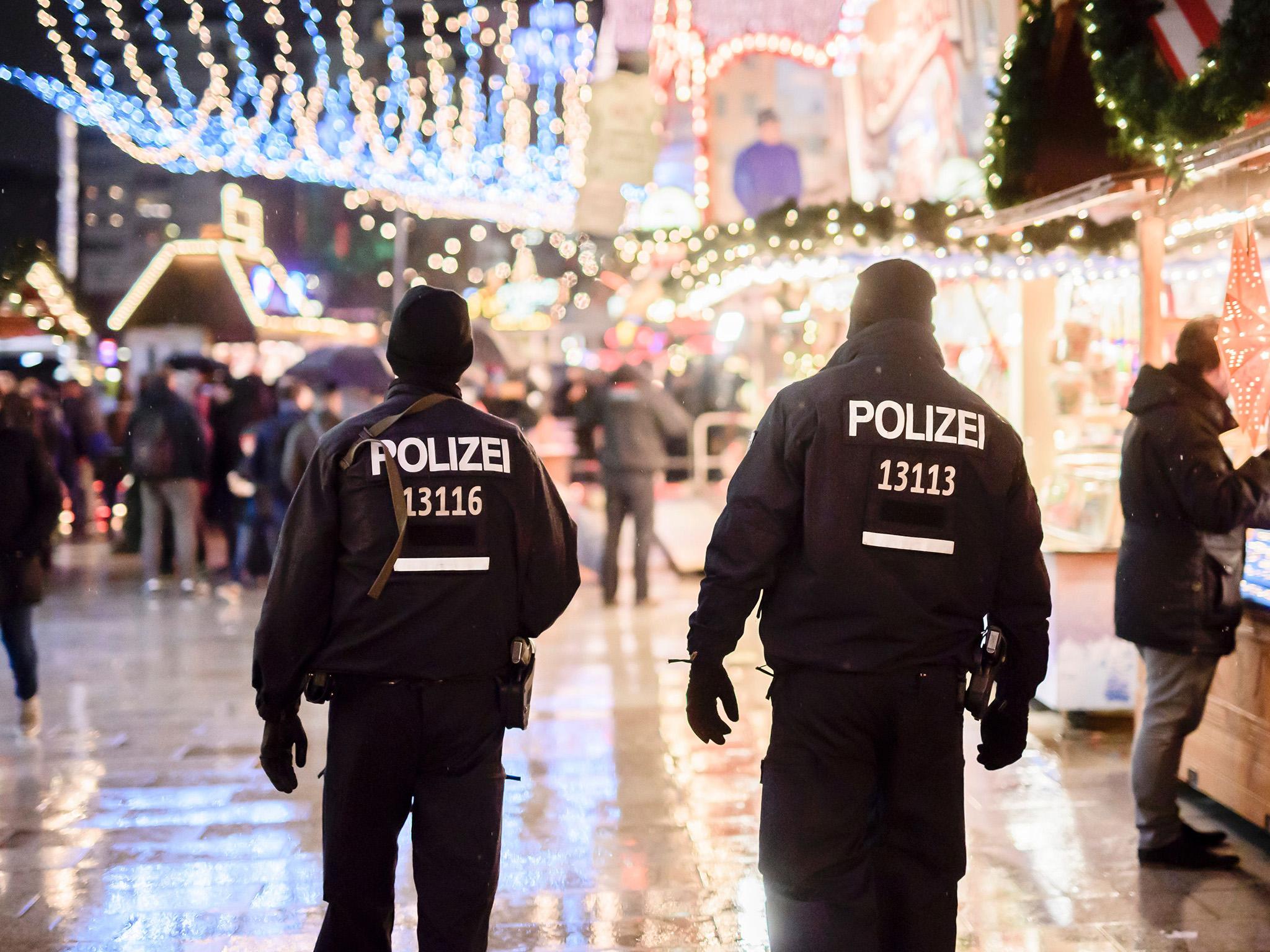
“So now we wait to see if something else will happen. I think the government has to change some things.
“Refugees are welcome, always, but if they get investigated and if they break the law, they have to leave immediately. To be criminal is criminal, so go.”
Anis Amri, the suspected attacker, remains on the run amid a Europe-wide manhunt after fleeing the scene after the crash.
The 24-year-old Tunisian man was investigated over a previous terror plot and had his asylum application denied but could not be deported because of a bureaucratic dispute.
Prosecutors are offering a €100,000 (£85,000) reward for information leading to Amri's arrest, warning people not to approach the “violent and armed” suspect.
For Robert and Pamela Maloney, an Irish couple on holiday in Berlin with their children, the potential threat is not dampening the “magic” of the Christmas markets.
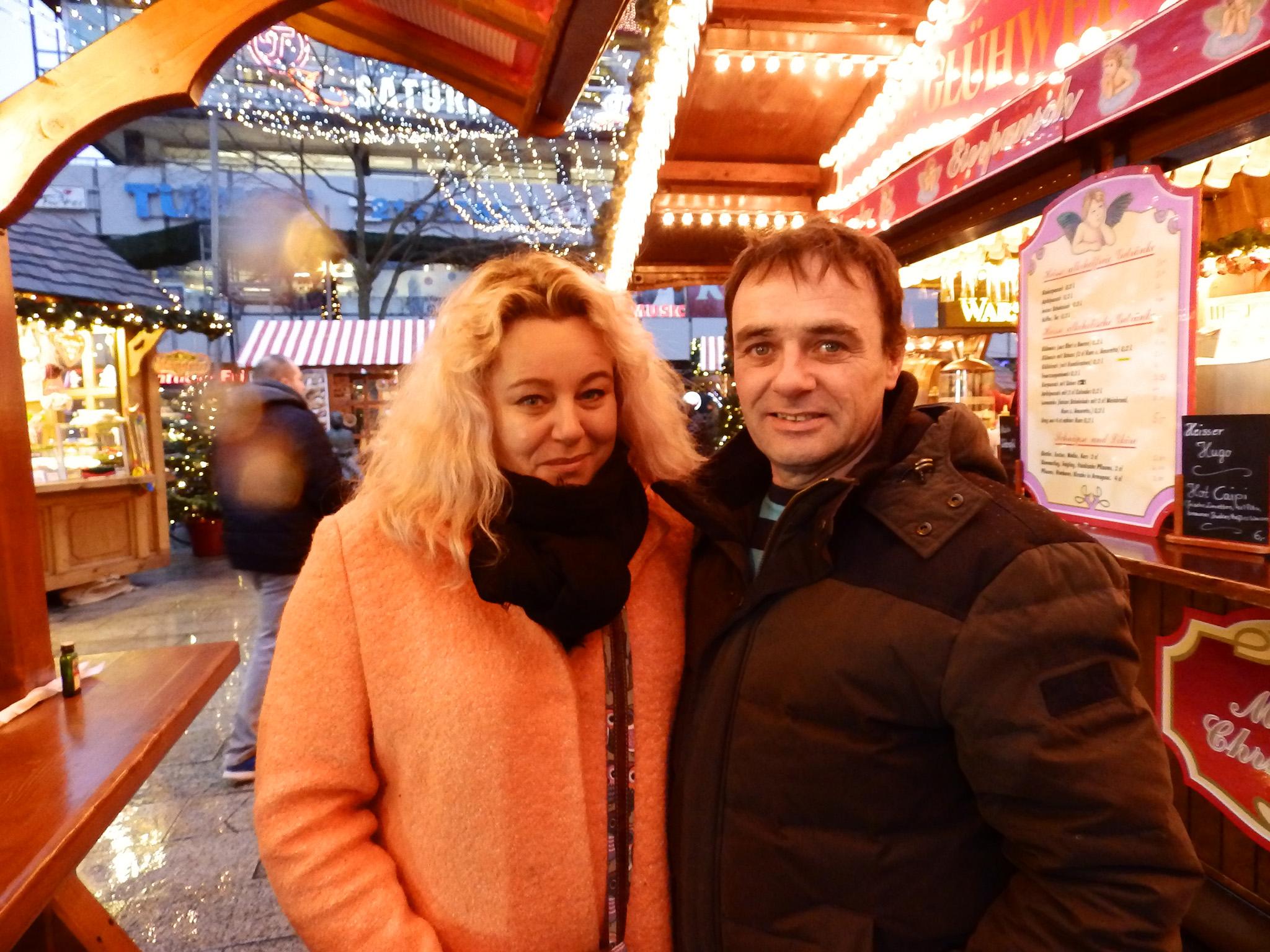
They learned of the attack, which has been claimed by Isis, the night before setting off for Germany and decided not to cancel the trip.
“It didn’t stop us – this is probably the in the world at the moment,” Mr Maloney says, gesturing towards a patrol of armed police.
But the effects of the attack can be felt, with the market far from full. The sound of laughter is rare from mostly sombre visitors, who stop to look at screens surrounding the destroyed stalls and lay down flowers and candles at memorials.
Richard Pawson, a 24-year-old from Yorkshire, is hunting for a stein of beer with his friends.
“The attack happened when we were on the plane over but we would have still come if we’d known,” he says.
“I think it’s good they reopened, they need to let life continue.”
Other British tourists browsing the market agree. A young couple from Devon came past within minutes after the lorry rampage but did not realise a terror attack had taken place.
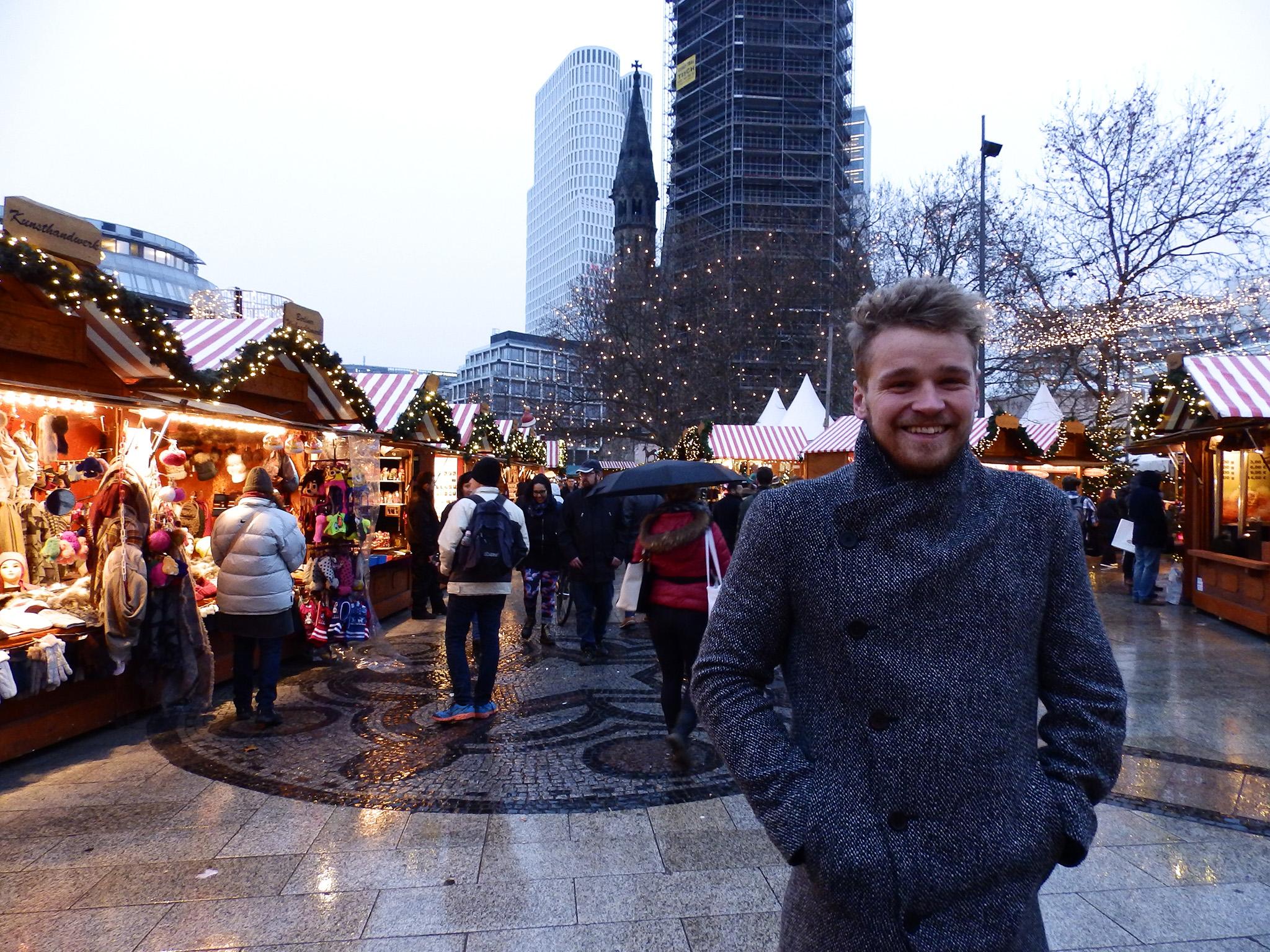
“There was just a whole load of sirens, we didn’t know what was going on,” says a woman, who did not want to be named.
“It seems a shame to stop coming just because of what happened, it would almost make it worse.”
Another British couple, both on leave from the Army, agree. They arrived in Berlin on Thursday and were determined to continue their holiday – even if the city “doesn’t seem very cheerful”.
“We went to Paris last year after the bombings and it didn’t put us off – if anything it makes it safer,” a woman says.
“You can’t stop doing everything because something bad happens.”
The sentiment seems to be shared by the bulk of people returning to the market, with signs calling for solidarity and unity visible among piles of candles and flowers left as tributes to the victims.
But signs of increasing division in Germany are not far away. Next to one memorial an elderly man stands holding a homemade placard addressed to Angela Merkel and the mayor of Berlin, Michael Müller.
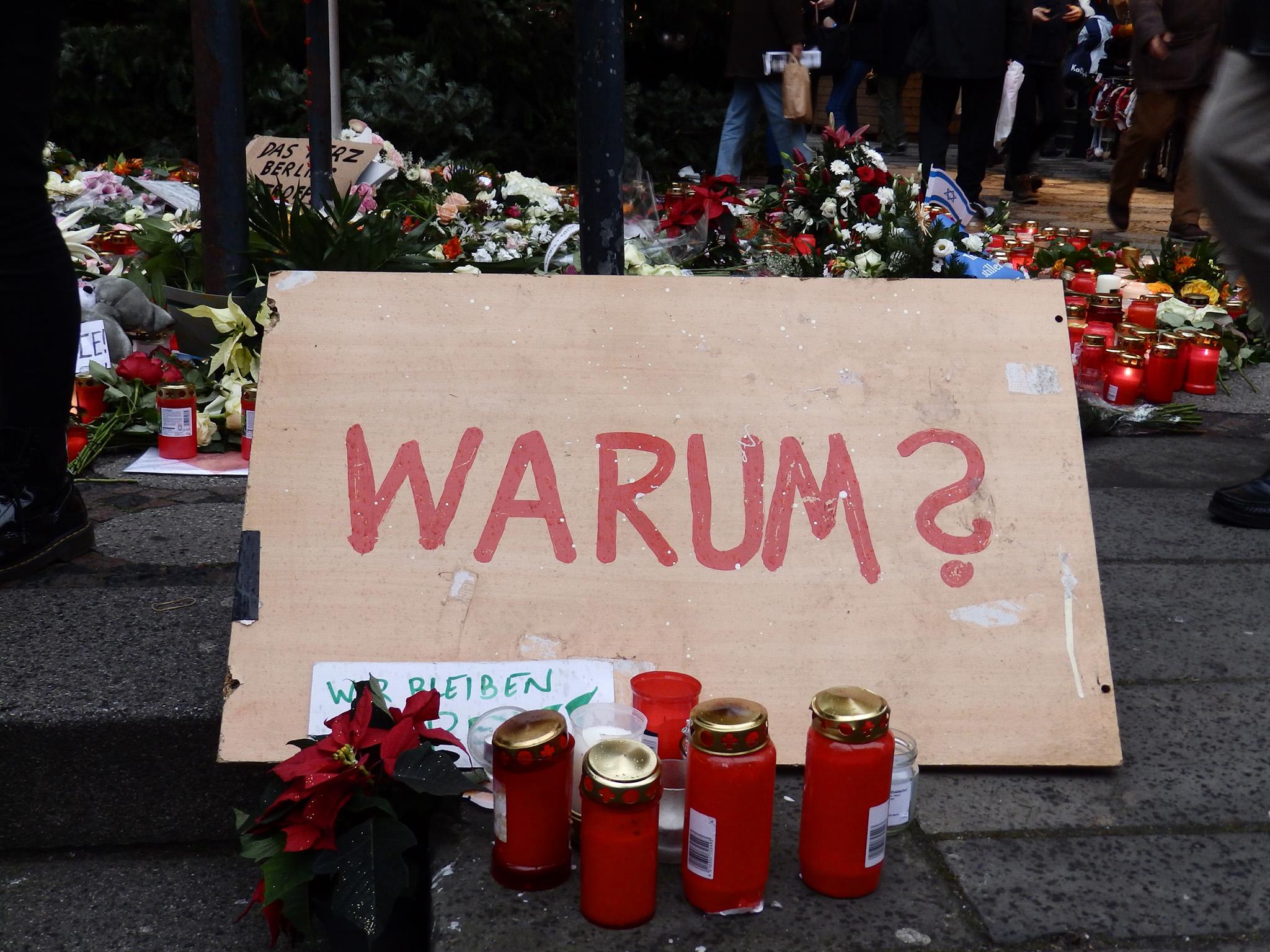
“Beloved leader,” it reads. “I am afraid of dying in Germany.”
Bernd Wierer, 75, is calling on his government to do more to protect the public and monitor almost 1 million refugees who have arrived in Germany since Ms Merkel opened the borders last year.
After comparing the Chancellor to North Korean dictator Kim Jong-un, he says: “I don’t think refugees should be stopped but the government has failed on safety. They need to know the identities of the newcomers.
“People said there is no danger, but I think there is a lot of danger.”
Protests and counter-protests have swept Berlin since the attack, which reignited ongoing debates over immigration, asylum and the role of Islam in German society.
Amid the tributes left for the dead are posters, banners and messages calling for unity, love and freedom in the face of terror.
“We remember the victims of this cowardly attack,” one reads. “But we are still Berliners and will remain open to the world.
“Our lives will continue to be free and nothing and no one can hold us down.”

Join our commenting forum
Join thought-provoking conversations, follow other Independent readers and see their replies
Comments